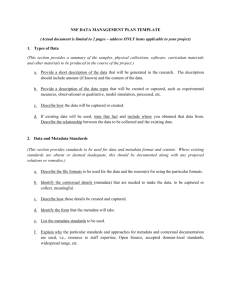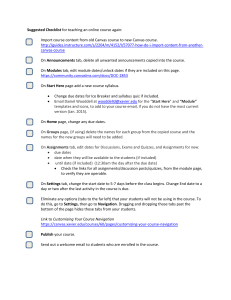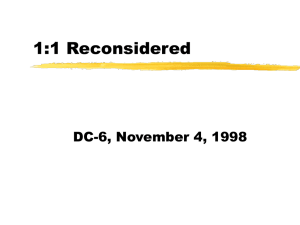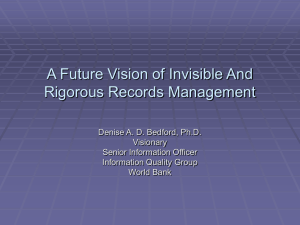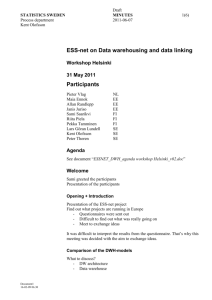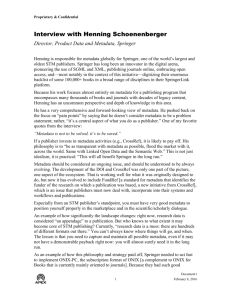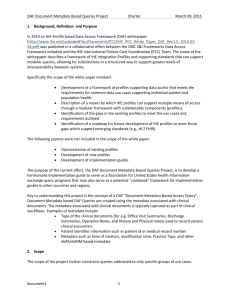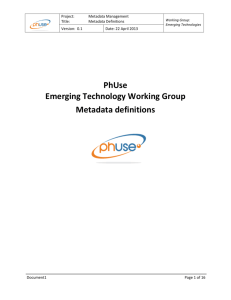Syllabus - Pasadena City College
advertisement
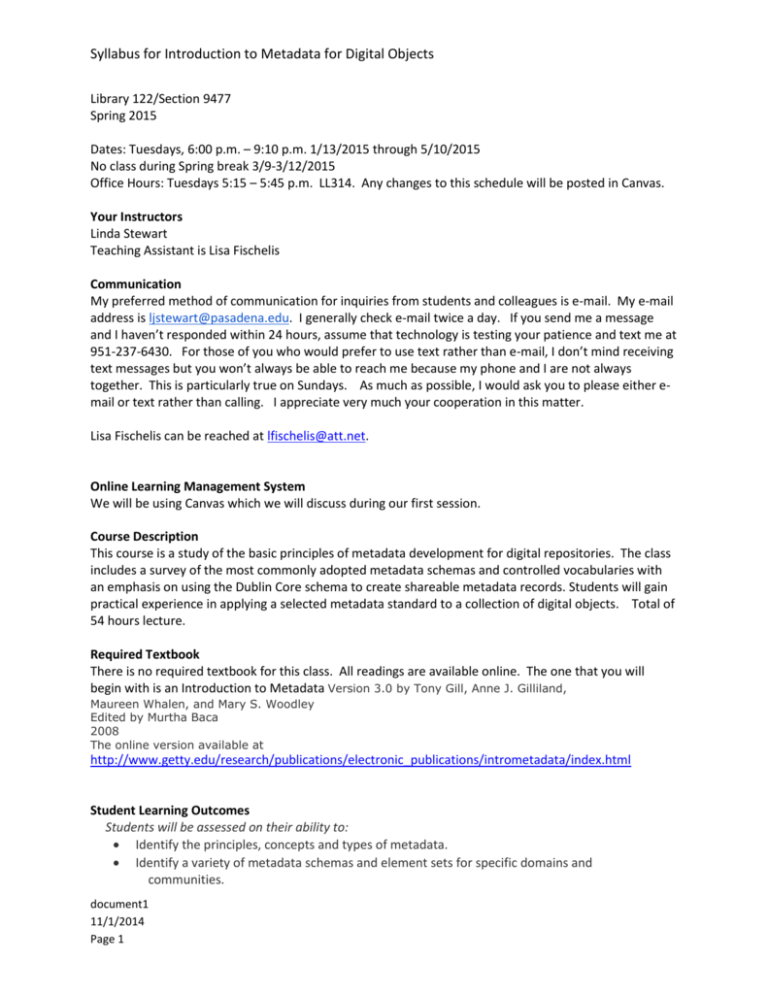
Syllabus for Introduction to Metadata for Digital Objects Library 122/Section 9477 Spring 2015 Dates: Tuesdays, 6:00 p.m. – 9:10 p.m. 1/13/2015 through 5/10/2015 No class during Spring break 3/9-3/12/2015 Office Hours: Tuesdays 5:15 – 5:45 p.m. LL314. Any changes to this schedule will be posted in Canvas. Your Instructors Linda Stewart Teaching Assistant is Lisa Fischelis Communication My preferred method of communication for inquiries from students and colleagues is e-mail. My e-mail address is ljstewart@pasadena.edu. I generally check e-mail twice a day. If you send me a message and I haven’t responded within 24 hours, assume that technology is testing your patience and text me at 951-237-6430. For those of you who would prefer to use text rather than e-mail, I don’t mind receiving text messages but you won’t always be able to reach me because my phone and I are not always together. This is particularly true on Sundays. As much as possible, I would ask you to please either email or text rather than calling. I appreciate very much your cooperation in this matter. Lisa Fischelis can be reached at lfischelis@att.net. Online Learning Management System We will be using Canvas which we will discuss during our first session. Course Description This course is a study of the basic principles of metadata development for digital repositories. The class includes a survey of the most commonly adopted metadata schemas and controlled vocabularies with an emphasis on using the Dublin Core schema to create shareable metadata records. Students will gain practical experience in applying a selected metadata standard to a collection of digital objects. Total of 54 hours lecture. Required Textbook There is no required textbook for this class. All readings are available online. The one that you will begin with is an Introduction to Metadata Version 3.0 by Tony Gill, Anne J. Gilliland, Maureen Whalen, and Mary S. Woodley Edited by Murtha Baca 2008 The online version available at http://www.getty.edu/research/publications/electronic_publications/intrometadata/index.html Student Learning Outcomes Students will be assessed on their ability to: Identify the principles, concepts and types of metadata. Identify a variety of metadata schemas and element sets for specific domains and communities. document1 11/1/2014 Page 1 Syllabus for Introduction to Metadata for Digital Objects Implement controlled vocabularies for entering descriptive information. Course Format Given that this program is designed to prepare students for working on digital projects, this class will build on the concepts learned in Introduction to Technologies for Digital Projects. While the focus of the class is on metadata, students will continue to scan and build digital projects. As was the case with the Introduction to Technologies for Digital Projects, most class sessions will begin with a lecture and class discussion but will include a hands-on session. Even though this is a face to face class, we will be using Canvas, the campus’ learning management system. The class will use Canvas for online quizzes, writing assignments, the mid-term project and final exam. Workload While there will be time in class for working on individual digital projects, students should plan on spending another six hours per week outside of the classroom reading, taking quizzes, and completing writing assignments. Grading Policy Grading scale is based on 585 points. 510 points are the total possible points for all graded assignments. The additional 75 points is related to attendance—15 weeks @ 5 pts. each week. Grades will be determined as a percentage of the total points available, based on the following scale: A 90-100% B 80-89% C 70-79% D 60-69% No Credit Less than 59% Course Requirements Attendance and Participation Because attendance is required at PCC, roll will be taken at the beginning of each class. The reality is that for this class, missing a session means that you will lose time on your class work. Therefore, if you cannot attend a session, you must contact the instructor ahead of time in order to make arrangements to use equipment, software, etc. Please remember PCC’s policy that missing class twice constitutes grounds for failure. If you are routinely late, and especially if you are disruptive when you enter the class, you will not receive the maximum possible points for attendance. If you decide to drop the class, you are responsible for officially dropping the class. Failure to drop a class may result in a grade of F. The deadline for dropping without a W is 1/27/2015. If you do not attend the first class session and have not contacted me by the start of the second class, you will be dropped. document1 11/1/2014 Page 2 Syllabus for Introduction to Metadata for Digital Objects Class Policies Late assignments We are all busy people and not surprisingly our personal lives sometimes conflict with our academic lives. The result is that occasionally you can’t get something turned in on time. You’re ill, your fouryear-old has kept you up for nights on end, you’re on an airplane when the assignment is due and your laptop died at the airport, you’ve had to work for six days straight, etc. Rather than having to explain all of this to me, at the end of the semester I will automatically drop your lowest score, which could be a zero. Or, if you’ve turned in everything, it may be the 89%, your lowest score. Word of warning— deciding that you’d prefer not to write a short paper and using that as your free pass can be risky unless it is the very last assignment. This offer does not extend to the mid-term or final projects for the class. Phones and other electronic devices All devices must be turned off or in silent mode during class. If you must read/respond, take it outside of the classroom. (Yes, that includes texting.) It is my hope that you will be considerate of your colleagues in the class and wait until break to deal with your messages. If it gets to be a problem, I am not above asking a student to leave. Canvas Information on assignments, grading rubrics, updates, etc. will all be available through Canvas. It is the student’s responsibility to login at least once a week. Food/Drink Food and drinks may not be consumed in Room LL311. class break. Instead, please enjoy them during your mid- Disabled Students Programs and Services (DSP&S) DSP&S is designed to enable eligible students with verified disabilities to fully participate within all Pasadena City College academic and vocational programs. Students with learning, physical, developmental, visual, hearing, speech/language, health impairments and psychological disabilities may inquire about services by contacting the DSP&S office at http://www.pasadena.edu/studentservices/DSPS/ Student Conduct and Academic Honesty Students are expected to adhere to the California Education Code policy on Student Conduct and Academic Honesty. See Pasadena Area College District Policy No. 4520 at: http://www.pasadena.edu/ipro/policies/pcc_4520.pdf document1 11/1/2014 Page 3
